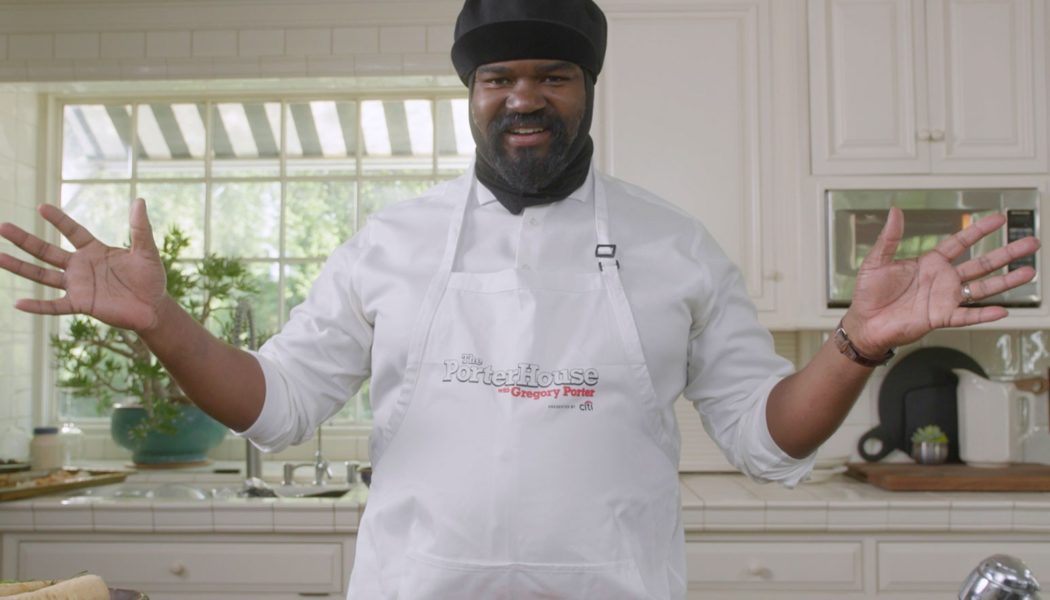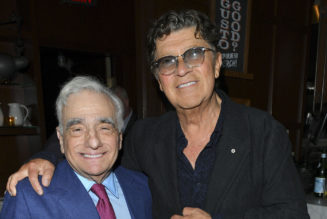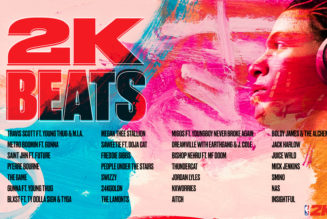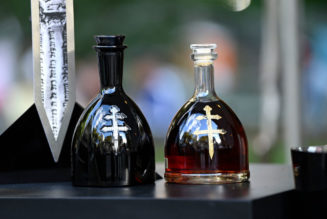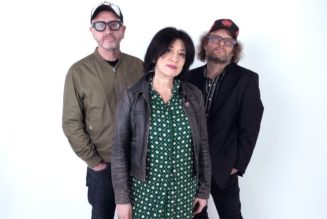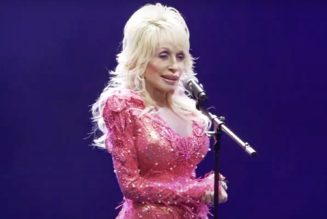
“Like music, cooking is another way to make somebody smile,” says Porter, one of eight children. “Growing up, I knew singing songs for my mother made her happy. And whatever I needed to do to help prepare the food and cook made her happy too. I’m just trying to express that through the things that I love.”
For Porter that includes giving back. Episode six centers around donating food to a local ministry and soup kitchen operated by his brother Dionne. In addition, the series’ sponsor Citi has pledged an additional donation to longtime partner No Kid Hungry to provide meals for U.S. families in need.
The day after the season finale, Citi will host an exclusive, hour-long virtual event on June 17. It will open with an intimate Q&A featuring Porter before the singer takes the stage to perform with a full band. It will be his first performance in more than a year.
Here are some tasty takeaways from Porter about cooking in the studio — and the kitchen.
What initially sparked the concept for The PorterHouse?
It’s something I’ve had in the back of my mind to perhaps do down the road. But then it became a way to take the place of the energies that came with not being able to perform onstage. So I talked to some powers that be at my label, we got some sponsors together and it all worked out. But I still want to bring the concept further into fruition like having a camera crew follow me the entire day from the shopping and marinating to the cooking and plating.
Over the course of the first season, which of your recipes received the biggest viewer response?
I’d say the gumbo. Every gumbo has a deep familial history with people having a lot to say about the dish. I received a lot of messages from people about their grandmas and other Southern relatives and how they make their gumbo using crab, other meats and sassafras leaf for the file. So there’s something familiar and understandable about the dish and its different cultural traditions. And while it has a strong history among Black Americans, it’s by no means just for us. It’s a dish that’s widely eaten.
What went into deciding which of your songs would be tied to each episode?
The perfect example of that can be heard in episode six. I’ve been blessed and fortunate in my career so I feel I have an obligation and responsibility to give back. So we cooked up a bunch of barbecue ribs and chicken and I made potato salad from my family’s recipe. But we didn’t serve ourselves or the crew. We took the food down to my brother’s soup kitchen and served it to people living on one of the worst streets in Bakersfield. These are people suffering from mental illness, drug abuse and other problems. And that’s exactly what my song “Take Me to the Alley” [the title track to Porter’s 2016 fourth album] talks about. In anything that I’m doing. I’m always trying to sneak in a special message. After we secured the sponsorship with Citi, I said I wanted to redirect some of the resources we were given to people who really need the help. We heard comments that day from people saying they’re usually served boiled pasta with catsup on top. This is a hard time for a lot of people. So in anything that I’m doing, I’m always trying to work in that message.
How do you equate creating music with how you season and cook your various recipes?
It’s all about unexpected combinations that make you feel good. When I write a song, I may take something from the traditions that exist in jazz, soul, gospel, blues or another genre and then twist it a bit. I love to do that as well with food and drink. For instance, I have this philosophy about the components that go into making lemonade: the sweet, the sour and the base, which is the water. The same thing with making spaghetti sauce. There’s the tomato. But what do you do to balance out to the acidity of the tomato? You have to have some sweetener whether it’s maple syrup or straight up sugar. Or a fresh herb like dill or mint that goes into a salad. I’m always thinking about what will liven things up in my music and cooking.
Speaking of unexpected combinations, you’re featured on Moby’s recently reimagined track “Natural Blues” along with Amythyst Kiah.
It was right in my wheelhouse. Moby uses those soulful musical utterances from a hundred years ago; the gospel blues that came out of the South and through migration found its way to California. So when Moby came to me, I said absolutely. I grew up singing stylistically like that. And every now and then that style finds its way into my music. Whenever I can exercise that country-gospel-blues muscle, I really enjoy it.
Check out episode five below (episode six will debut at noon ET on Wednesday).
